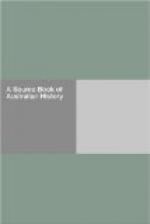The inhabitants of this country are the miserablest people in the world. The Hodmadods of Monomatapa, though a nasty people yet for wealth are gentlemen to these, who have no houses and skin garments, sheep, poultry, and fruits of the earth, ostrich eggs etc. as the Hodmadods have; and setting aside their human shape, they differ but little from brutes. They are tall, straight-bodied and thin, with small long limbs. They have great heads, round foreheads and great brows. Their eyelids are always half closed to keep the flies out of their eyes, being so troublesome here, that no fanning will keep them from coming to one’s face, and without the assistance of both hands to keep them off, will creep into one’s nostrils and mouth too, if the lips are not shut very close. So that from their infancy being thus annoyed with these insects, they never open their eyes as other people; and therefore they cannot see far, unless they hold up their heads, as if they were looking at somewhat over them.
They have great bottle noses, pretty full lips, and wide mouths. The two fore-teeth of their upper jaw are wanting in all of them, men and women, old and young; whether they draw them out, I know not, neither have they any beards. They are long-visaged, and of a very unpleasing aspect, having no one graceful feature in their faces. Their hair is black, short and curled, like that of the negroes, and not long and lank like the common Indian. The colour of the skin, both of their faces and the rest of their body, is coal black, like that of the negroes of Guinea.
They have no sort of clothes, but a piece of the rind of a tree tied like a girdle about their waists, and a handful of long grass or three or four small green boughs, full of leaves, thrust under their girdle to cover their nakedness.
They have no houses, but lie in the open air, without any covering, the earth their bed, and the heaven their canopy. Their only food is a small sort of fish, which they get by making wares of stone, across little coves, or branches of the sea; every tide bringing in the small fish, and there leaving them for a prey to these people, who constantly attend there to search for them at low water. This small fry I take to be the top of their fishery; they have no instruments to catch great fish, should they come; and such seldom stay to be left behind at low water; nor could we catch any fish with our hooks and lines all the while we lay there.
In other places at low water they seek for cockles, mussels, and periwinkles; of these shell-fish there are fewer still, so that their chief dependence is on what the sea leaves in their wares, which, be it much or little, they gather up, and march to the place of their abode. There the old people, that are not able to stir abroad, by reason of their age, and the tender infants, wait their return: and what providence has bestowed upon them, they presently broil on the coals, and eat in common. Sometimes they get as many fish as make them a splendid banquet; and at other times they scarce get every one a taste; but be it little or much that they get, every one has his part, as well the young and tender, and the old and feeble who are not able to go abroad, as the strong and lusty.




